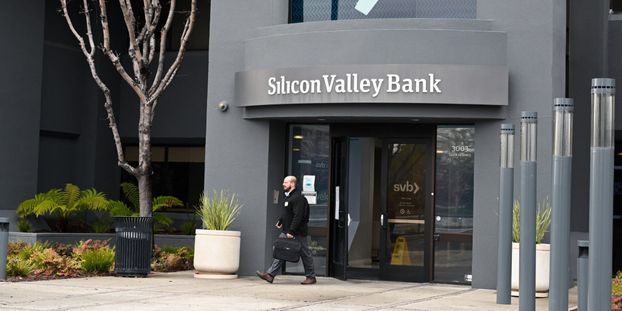The fall of Silicon Valley Bank has created a sense of panic in the financial sector, as investors and analysts fear a domino effect with other companies seeing significant blows to their accounts. This concern stems from the fact that many startups and high-tech companies held accounts at SVB, and the bank’s collapse has left hundreds of entrepreneurs desperate to get their cash out in the 24 hours leading to their bankruptcy. This event is particularly significant as SVB is the largest bank bankrupt a decade after the infamous Lehman Brothers that caused the Global Financial crisis of 2008.
Venture capitalists are also feeling the impact of Silicon Valley Bank’s fall, as higher interest rates and the increasing cash burn rate of startups have already hit them. In addition, the bank’s collapse has created further uncertainty and instability in a volatile market. The FDIC has taken control of the bank and has announced that insured depositors will have access to their deposits no later than Monday morning. However, it is worth noting that the FDIC’s coverage only extends to $250K per depositor.
The fall of Silicon Valley Bank has also raised concerns about the stability of other financial institutions that held a significant proportion of SVB. Banks and other financial institutions are closely monitored, as there is a risk of further collapses in the next few days or weeks. The bank had tried to raise funds, but on Wednesday, it was reported that they were looking for more than $2 billion in additional capital after suffering a $1.8 billion loss on asset sales.
How Exposed Are AgTech Companies?
The bankruptcy of Silicon Valley Bank has sent shockwaves through the agtech sector, with many prominent companies and startups affected. While it is difficult to ascertain precisely how many agtech companies held accounts with the bank, some of the most notable clients include Bowery Farming, Farmers Business Network, and Impossible Foods. These companies have raised significant funding rounds and have been instrumental in advancing innovation in the agriculture and food production industries.
Bowery Farming, in particular, is one of the largest vertical farming companies in the world, with multiple extensive facilities in operation and plans to expand in the coming years. Farmers Business Network provides a platform for farmers to make informed decisions about their operations and ensure economic viability and has raised over $870M. Impossible Foods is a leader in developing plant-based substitutes for animal products and has raised nearly $2 billion in funding rounds. It is worth noting that no statement has been made on the significance of the bank’s blow, so it is impossible to know how much it affected them.
The impact of the bankruptcy is not limited to the US, with regulators in the UK already taking action to minimize the fallout for businesses in England. In Israel, there are fears that the bankruptcy could have a ripple effect on the country’s entire startup ecosystem, while India faces the potential for widespread bankruptcies. In addition, the situation has prompted many other countries and organizations to monitor the situation closely, with concerns mounting in the wake of Powell’s recent speech, which raised the possibility of additional interest rate hikes and further economic instability.
Latest Updates:
- Government Intervention: The Department of Treasury, Federal Reserve, and FDIC assured that all depositors at SVB would have full access to their funds, regardless of the account size. Read more here.
- Formation of Silicon Valley Bridge Bank: SVB’s deposit accounts and certain other assets were transferred to Silicon Valley Bridge Bank, N.A. Details here.
- Uncertainty in Loan Agreements: The FDIC’s stance on loan agreements and the financial commitments of SVB is explained in this article.
- Creation of the Bank Term Funding Program: Information about the Federal Reserve’s response can be found here.
- Acquisition of SVB UK by HSBC: The announcement about HSBC’s acquisition of Silicon Valley Bank UK Limited is detailed in this source.
- Possible Bankruptcy Filing by SVB Financial Group: Expectations of SVB Financial Group’s potential bankruptcy filing are discussed in this report.



2 Comments